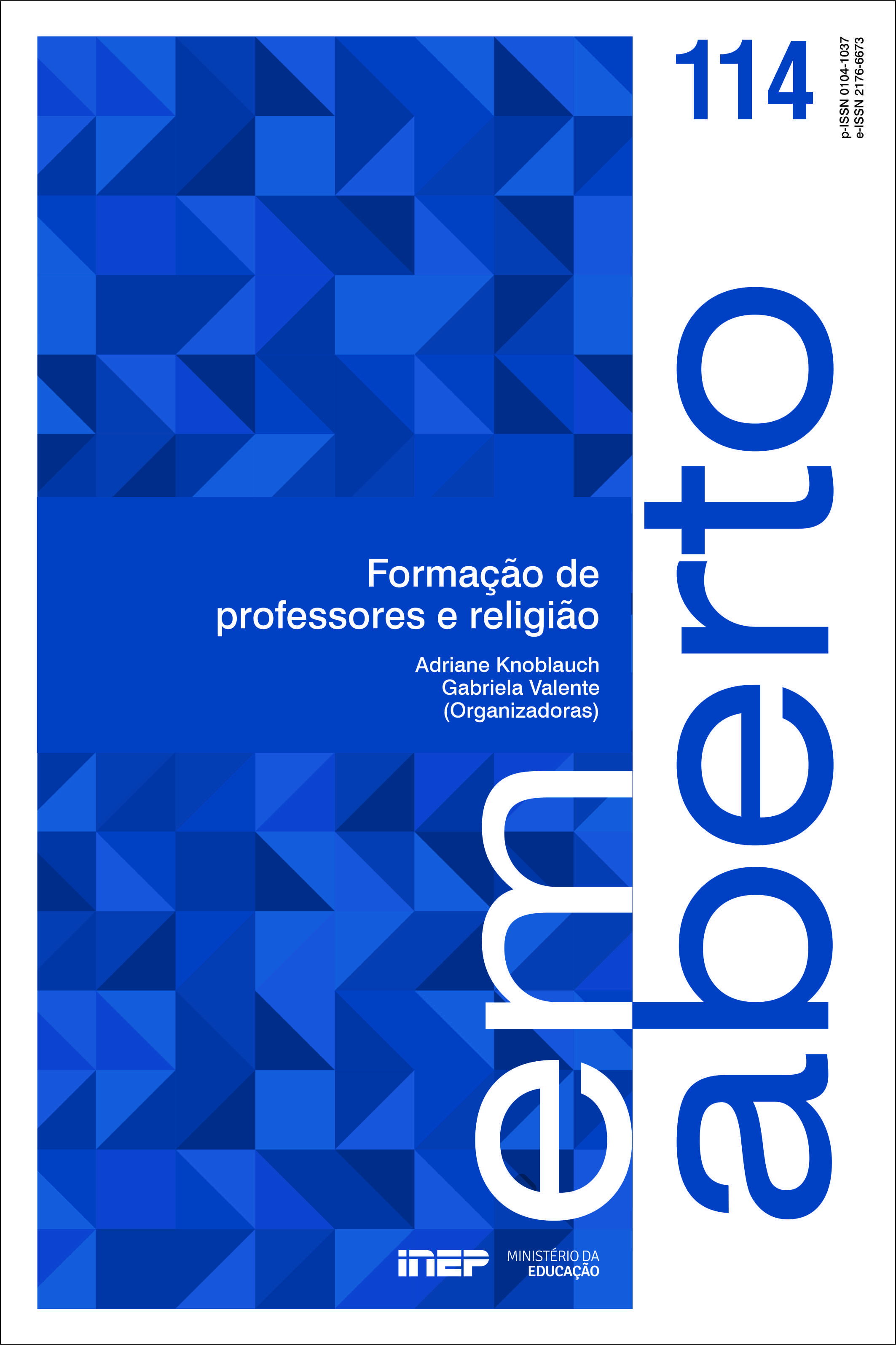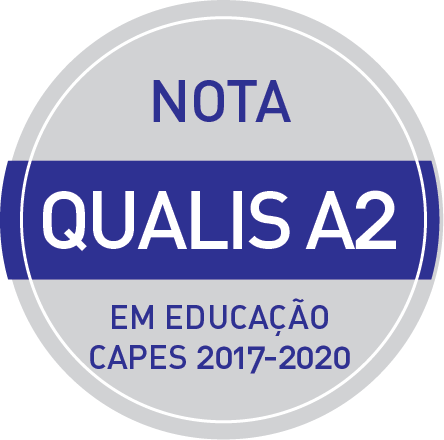Which neutral actions must be taken regarding Moral and Civic Education (MCE) in France? Tensions between non-discrimination and the religious issue
Abstract
This paper bases itself on reports from the Centre National d’Étude des Systèmes Scolaires (CNESCO) and on research conducted on teachers’ professional hardships with the teaching of Moral and Civic Education (MCE) to primary and secondary education classes. The hypotheses, beside the pedagogical application itself, is that this teaching is hindered by two substantial professional hardships: the incapacity of identifying what must be taught (especially regarding scientifical knowledge) and the lack of a “neutral” professional attitude that enables the transmission of the republican school’s values while dealing with the political, cultural and religious diversity of students. Based on the observations of a group of student teachers, it relates difficulties regarding expected professional attitudes and the didactic distance between opinions, knowledges, and values in the classroom.
Downloads
References
ANDRO, G. Distinguer entre savoir critique et opinion critique: quelle posture de neutralité pour l’enseignant en EMC? Éducation et Socialisation: les Cahiers du Cerfee, Montpellier, n. 64, 2022. Disponible à: http://journals.openedition.org/edso/19148. Accès à: 29 août 2022.
BOLTANSKI, L.; THÉVENOT, L. De la justification: les économies de la grandeur. [Montréal]: Gallimard, 1991.
BUCHETON, D.; SOULÉ, Y. Les gestes professionnels et le jeu des postures de l’enseignant dans la classe: un multi-agenda de préoccupations enchâssées. Éducation et Didactique, [S.l.], v. 3, n. 3, p. 29-48, oct. 2009.
CHAMPY, F. La sociologie des professions. Paris: PUF, 2009. (Collection Quadrige).
CHARLIER, J. E. Le grouillement des vérités concurrentes dans les salles de classe. Éducation et Sociétés, [S.l.], n. 33, p. 15-30, 2014.
DORIA, C. L’éducation morale dans les projets de loi sur l’instruction publique pendant la Révolution: un miroir des antinomies des Lumières. La Révolution Française, [S.l], n. 4, 2013. Disponible à: https://journals.openedition.org/lrf/852. Accès à: 29 août 2022.
DUBET, F.; MARTUCELLI, D. Théories de la socialisation et définitions sociologiques de l’école. Revue Française de Sociologie, [S.l.], v. 37, n. 4, p. 511-535, 1996. Disponible à: https://www.persee.fr/doc/rfsoc_0035-2969_1996_num_37_4_4471. Accès à: 22 juin 2022.
FABRE, M. Éduquer pour un monde problématique: la carte et la boussole. Paris: PUF, 2011. (Collection L’interrogation Philosophique).
FABRE, M. Les “éducations à”: problématisation et prudence. Éducation et socialisation: les cahiers du Cerfee, Montpellier, n. 36, 2014. Disponible à: https://journals.openedition.org/edso/875. Accès à: 29 août 2022.
FOUCAULT, M. Surveiller et punir. [Montréal]: Gallimard, 1975.
FRANCE. Ministère de l’Éducation (ME). Programme d’enseignement moral et civique de l’école et du collège (cycles 2, 3 et 4): les finalités de l’enseignement moral et civique. Bulletin Officiel de l’Éducation Nacionale, [S.l.], n. 30, 26 juil.
Annexe. Disponible à: https://cache.media.education.gouv.fr/file/30/73/4/ensel170_annexe_985734.pdf. Accès à: 29 août 2022.
HEINICH, N. Pour une neutralité engagée. Questions de Communication, n. 2, p. 117-127, 2002.
HOUSSAYE, J. Le triangle pédagogique. Berne: Peter Lang, 1988. Disponible à: http://shs-app.univ-rouen.fr/Old_appli/civiic/archives/LE%20TRIANGLE%20PEDAGOGIQUE.pdf. Accès à: 29 août 2022.
HUSSER, A. C. L’enseignement moral et civique dans les établissements scolaires français, une transversalité consistante? Ethique en Éducation et en Formation, Montréal, n. 4, p. 12-29, automne 2017.
LANTHEAUME, F. Religions, discriminations et racisme en milieu scolaire (Redisco). Lyon: Laboratoire Education, Cultures, Politiques, 2016. Disponible à: http://centre-alain-savary.ens-lyon.fr/CAS/et-encore/lutte-contre-lesdiscriminations/lutter-contre-les-discriminations-a-lecole/4/1/presentation-de-larecherche-redisco-par-francoise-lantheaume. Accès à: 29 août 2022.
MAGNAN, M. O. et al. L’éducation inclusive en contexte de diversité ethnoculturelle: comprendre les processus d’exclusion pour agir sur le terrain de l’école. Recherches en Éducation,[S.l.], n. 44, mars 2021. Disponible à: http://journals.openedition.org/ree/3300. Accès à: 29 août 2022.
ORGANISATION DES NATIONS UNIES POUR L’ÉDUCATION, LA SCIENCE ET LA CULTURE (UNESCO). Principes directeurs pour l’inclusion dans l’éducation. Paris: Unesco, 2009. Disponible à: https://unesdoc.unesco.org/ark:/48223/pf0000177849_fre/PDF/177849fre.pdf.multi. Accès à: 29 août 2022.
RANCIÈRE, J. O mestre ignorante: cinco lições sobre a emancipação intelectual. Tradução de Lilian do Valle. Belo Horizonte: Autêntica, 2002.
UNESCO ver Organisation des Nations Unies pour l’Education, la Science et la Culture.
VINCENT, G. L’éducation prisonnière de la forme scolaire? Scolarisation et socialisation dans les sociétés industrielles. Lyon: Presses universitaires de Lyon, 1994.
WEBER, M. Essais sur la théorie de la science. Paris: Plon, 1965.

This work is licensed under a Creative Commons Attribution-NonCommercial 4.0 International License.
These are the terms of this Copyright Notice:
- I declare that I permanently forfeit in favor of the National Institute of Educational Studies and Research (INEP) all rights related to:
-
- editing, publication, reproduction, and distribution of the work;
- publication through digital and electronic media;
- translation of the work to any language;
- updating, re-printing, adaptation, and compression of the work;
- uploading of work in the publishing platform of INEP;
- divulging complete or parts of work through the World Wide Web (internet), whether in Brazil or foreign countries;
- authorization of third parties to execute any of the acts mentioned before.
- I explicitly declare that I am solely responsible for the opinions expressed in the work, and its publication does not violate the rights of third parties.
- I declare that the nature of said work is one of pro bono publico and, as such, I forfeit the right to any compensation regarding ownership rights granted.
- I authorize spelling and grammatical review of the manuscript, provided that the content and opinions therein remain unchanged.












